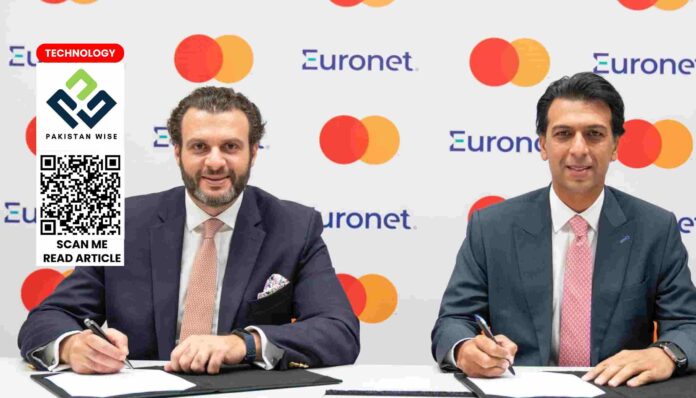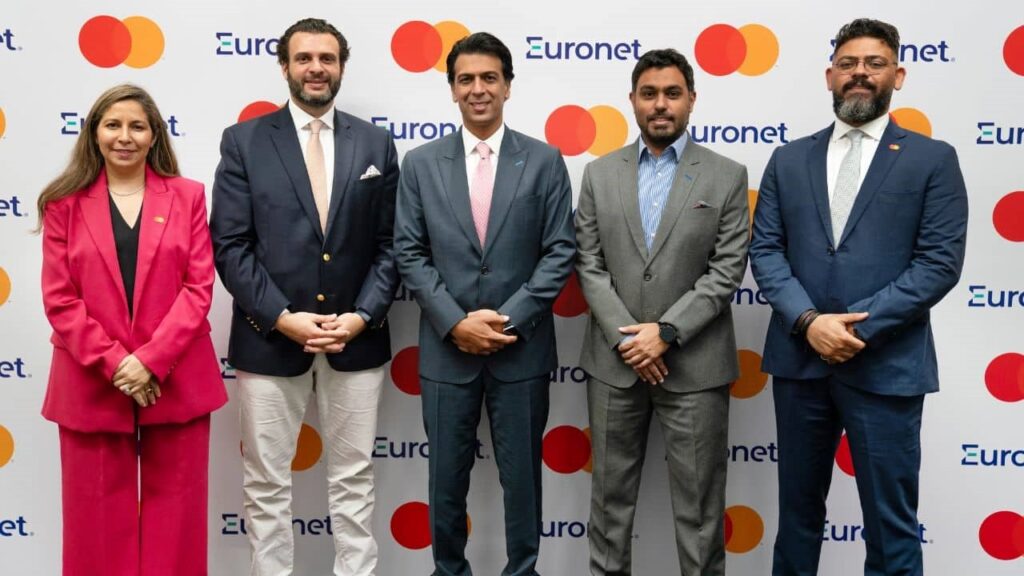In an important development, Mastercard, a global leader in digital payments, has joined forces with Euronet, a key player in secure electronic financial transactions. This partnership aims to bring groundbreaking concepts, namely Card-as-a-Service (CaaS) and Bank-as-a-Fintech (BaaF), to Pakistan’s financial landscape, heralding a significant industry transformation.
At the heart of this collaboration is the establishment of a fully outsourced CaaS and BaaF hub, hosted on Euronet’s advanced payment platform. This hub serves as a bridge, connecting various market players to Mastercard’s wide range of products and services. By seamlessly integrating with Mastercard and Euronet’s solutions, this hub empowers businesses to quickly introduce next-generation customer offerings. Issuer banks, fintech firms, and non-financial institutions gain easy access to ready-to-market use cases through sandbox portals, ensuring the rapid deployment of customer-focused solutions.
This partnership also allows customers to use software development kits (SDKs) and bundled offerings, making it easier to provide exceptional products and services to their subscribers. As a result, end consumers benefit by gaining access to customized digital financial products tailored to their specific needs, especially in segments like youth and small and medium-sized enterprises (SMEs).
The advantages of this collaboration go beyond businesses and consumers. Governments also benefit by gaining the ability to meet local requirements and enhance community services. They can achieve this by launching new financial wellness and educational apps targeting the youth, ultimately creating a comprehensive, one-stop shop for these services. Mastercard’s exclusive benefits, products, and services further enrich these offerings.
J.K Khalil, Cluster General Manager, MENA East at Mastercard, highlights the importance of updating payments to meet changing consumer needs in Pakistan. He describes this partnership as a guide, leading various financial players toward efficient access to Mastercard’s assets and products.
Kashif Gaya, CEO of Euronet Pakistan, emphasizes their commitment to streamline payment services in Pakistan by eliminating barriers that hinder market players from entering the payment services sector, such as BIN sponsorship, infrastructure readiness, operational costs, and time-to-market delays. The partnership with Mastercard underscores their dedication to complying with regulatory requirements for a digitized payments ecosystem. It ensures that new market segments and demographics can access Mastercard’s products, services, and benefits through user-friendly propositions, guaranteeing swift launches.
The impact of this collaboration extends beyond Pakistan’s borders, with plans to potentially expand these innovative services to other markets in the Middle East and Africa. This partnership sets a new standard in the financial industry, focusing on agility, accessibility, and innovation.
In summary, the Mastercard and Euronet partnership is set to bring a new era of financial innovation to Pakistan. By introducing CaaS and BaaF models, this collaboration aims to make the financial landscape more accessible, efficient, and customer-centric. As it paves the way for the future of finance in Pakistan, its influence is likely to extend to other markets in the region and beyond.


